|
Books Should Be Free Loyal Books Free Public Domain Audiobooks & eBook Downloads |
|
|
Books Should Be Free Loyal Books Free Public Domain Audiobooks & eBook Downloads |
|
Books of Memoirs |
|---|
|
Book type:
Sort by:
View by:
|
By: Jack London (1876-1916) | |
|---|---|
 Road
Road
Jack London credited his skill of story-telling to the days he spent as a hobo learning to fabricate tales to get meals from sympathetic strangers. In The Road, he relates the tales and memories of his days on the hobo road, including how the hobos would elude train crews and his travels with Kelly’s Army. | |
By: Jacob Stroyer (1849-1908) | |
|---|---|
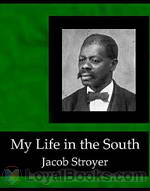 My Life in the South
My Life in the South
My Life in the South is the vivid and touching autobiography of African-American former slave, Jacob Stroyer. It recounts experiences from his early childhood on the planation up to his involvement in the Confederacy's war effort and eventually his experience of becoming a free man. | |
By: Jacob William Wright | |
|---|---|
 The Long Ago
The Long Ago
Short memory of boyhood by a little-known American poet based in Carmel-By-The-Sea, California. | |
By: James Berry (1852-1913) | |
|---|---|
 My Experiences as an Executioner
My Experiences as an Executioner
From 1884 until 1891, James Berry was an executioner. In this time he carried out 131 hangings. In this memoir he writes about the methods he used, and the final moments of some of those he executed. | |
By: James Boswell (1740-1795) | |
|---|---|
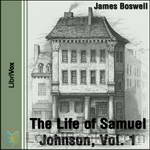 The Life of Samuel Johnson
The Life of Samuel Johnson
Boswell’s Life of Samuel Johnson is widely considered to be the greatest English-language biography ever written. It was revolutionary in its efforts to represent Johnson as he was, celebrating his flaws as well as his genius, and in Boswell’s decision to represent Johnson primarily by quoting his writings and relating personal anecdotes rather than relying on matters of public record. From the time of its publication till now, The Life of Johnson has been one of the most popular and influential books ever written. | |
By: James Fenimore Cooper (1789-1851) | |
|---|---|
 Autobiography of a Pocket-Handkerchief
Autobiography of a Pocket-Handkerchief
Take a fascinating journey from France to America through the "eyes" of a pocket handkerchief. She marvels at the vastness of the universe which the Creator devised and glories in her own fabrication by the young hands of a French peasant. All the while, she sees the intricacies of Providence in her life, as well as those about her. | |
By: James Inglis (1845-1908) | |
|---|---|
 Our New Zealand Cousins
Our New Zealand Cousins
A travelogue of a trip through New Zealand in 1885 with panegyric descriptions of the scenery, elucidations of the progress the country had made since the writer had been there twenty years earlier, encomiums on the differences between New South Wales and New Zealand, and the writer's thoughts on where the two colonies needed to progress in the areas of agriculture, mining, forestry and education. Chapter 20 outlines a brief visit to Hobart on the way home, while the Appendix covers some statistics on the forestry industry in New Zealand and concludes with descriptions of the eruption of Tarawera in June 1886 as reported by the Sydney newspapers. | |
By: James Orton (1830-1877) | |
|---|---|
 The Andes and the Amazon
The Andes and the Amazon
This book, with the subtitle "Across the Continent of South America" describes the scientific expedion of 1867 to the equatorial Andes and the Amazon. The route was from Guayaquil to Quito, over the Cordillera, through the forest to Napo, and, finally, on the Rio Napo to Pebas on the Maranon. Besides this record, the expedition - under the auspices of the Smithsonian Institute - collected samples of rocks and plants, and numerous specimen of animals. The scientists also compiled a vocabulary of local languages and produced a new map of equatorial America... | |
By: James Weldon Johnson (1871-1938) | |
|---|---|
 Autobiography of an Ex-Colored Man
Autobiography of an Ex-Colored Man
Johnson's only novel, The Autobiography of an Ex-Colored Man, was originally published anonymously in 1912. It is a fictional novel written as a memoir of an unnamed biracial narrator who grew up in the South during the Reconstruction and post-Reconstruction eras. It is a story in which the narrator relates how as a young boy he initially assumed that he was white, and how his notions of racial identity were suddenly turned upside down one day—how from that moment on he was inclined to view himself and the world about him from the perspective of blackness. The novel received very little notoriety until Johnson republished it in 1927, this time taking full credit as its author. | |
By: Jane Addams (1860-1935) | |
|---|---|
 Twenty Years at Hull-House
Twenty Years at Hull-House
Jane Addams was the first American woman to be awarded the Nobel Peace Prize. In a long, complex career, she was a pioneer settlement worker and founder of Hull-House in Chicago, public philosopher (the first American woman in that role), author, and leader in woman suffrage and world peace. She was the most prominent woman of the Progressive Era and helped turn the nation to issues of concern to mothers, such as the needs of children, public health and world peace. She emphasized that women have a special responsibility to clean up their communities and make them better places to live, arguing they needed the vote to be effective... | |
By: Jane Barlow (1857-1917) | |
|---|---|
 Irish Idylls
Irish Idylls
Irish Idylls is a collection of short stories about Irish peasantry during the 19th Century. Ms Jane Barlow, an Irish lass, having, unbelievably, an uncertain date of birth, has a turn of phrase that delights and simultaneously enmeshes the reader/listener with compassion for her tableau. She captures the tune and lilt of dialogue so delightfully. A tiny sample: "So, by hook or by crook, Lisconnel holds together from year to year, with no particular prospect of changes; though it would be safe enough to prophesy that should any occur, they will tend towards the falling in of derelict roofs, and the growth of weeds round deserted hearthstones and crumbling walls... | |
By: Jean-Jacques Rousseau (1712-1778) | |
|---|---|
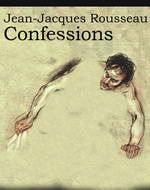 Confessions
Confessions
Considered to mark the emergence of a new literary form, the unvarnished autobiography, Confessions by Jean-Jacques Rousseau was first published in 1782, four years after his death. The philosopher and educationist whose political philosophy is credited with having inspired the French Revolution, Rousseau was a man of immense wit, talent and depth of thinking. His skill in art, music, literature and cooking along with his magnificent body of work in philosophy, politics, education and sociology have made him a legendary figure... | |
By: Jesse James, Jr. (1875-1951) | |
|---|---|
 Jesse James, My Father
Jesse James, My Father
A biography of Jesse James as told by his son, Jesse James, Jr. We are treated to inside tales of Jesse's childhood and home life; what drove him to become a Confederate guerrilla during the Civil War; his life after the war and how he became a wanted man. Since it was written by his son, it is a little biased and we are not told anything about any crimes Jesse and his gang committed. Some of the stories of Jesse's war adventures are a little hard to believe, but a good read nonetheless. | |
By: Johanna Brandt (1876-1964) | |
|---|---|
 The Petticoat Commando
The Petticoat Commando
In introducing the English version of this book I venture to bespeak a welcome for it, not only for the light which it throws on some little-known incidents of the South African war, but also because of the keen personal interest of the events recorded. It is more than a history. It is a dramatic picture of the hopes and fears, the devotion and bitterness with which some patriotic women in Pretoria watched and, as far as they could, took part in the war which was slowly drawing to its conclusion on the veld outside... | |
By: John Aubrey (1626-1697) | |
|---|---|
 Brief Lives Volume II
Brief Lives Volume II
Volume 2 of Aubrey's sparkling gossipy biographical pieces on his contemporaries, including Bacon, Jonson and Shakespeare, Brief Lives' glimpses into the unofficial side of these towering figures has won it an undying popularity, with Ruth Scurr's recent reimagined "autobiography" of Aubrey, breathing new life into this classic for the next generation of readers - Summary by Nicole Lee | |
By: John Beresford (1888-1940) | |
|---|---|
 Diary of a Country Parson
Diary of a Country Parson
The Revd. James Woodforde was an English clergyman, best known for his vivid account of parish life in the 18th century. His diary, edited by John Beresford, remained unpublished until the 20th century. The diary provides a wonderfully full account of the small community in which the diarist lived — of the births and deaths, comings and goings, illnesses, and annual celebrations, along with many other details of daily life. As a churchman, Woodforde himself was conscientious by the standards of his time, charitable and pious without being sanctimonious and again typical of his day, deeply suspicious of enthusiasm... | |
By: John Billings (1842-1933) | |
|---|---|
 Hardtack and Coffee
Hardtack and Coffee
Hard Tack and Coffee: The Unwritten Story of Army Life is a memoir by John D. Billings, a veteran of the 10th Massachusetts Volunteer Light Artillery Battery in the American Civil War. Hard Tack and Coffee is not about battles, but rather about how the common Union soldiers of the Civil War lived in camp and on the march. It covers the details of regular soldier life, including enlisting, how soldiers were sheltered, Army rations, offenses and punishments, a day in camp, boxes from home, foraging , the army mule, hospitals and ambulances, clothing, breaking camp and marching, and other similar topics... | |
By: John D. Rockefeller (1839-1937) | |
|---|---|
 Random Reminiscences of Men and Events
Random Reminiscences of Men and Events
A good book by the oil revolutionist of the 20th century. As they say "Men should listen to experience" and this book is all about the experience of the second highest taxpayer of the US during the 20's. Though it is not in the book, this is a small poem he wrote:I was early taught to work as well as play,My life has been one long, happy holiday;Full of work and full of play-I dropped the worry on the way- And God was good to me everyday. | |
By: John Dee (1527-1608) | |
|---|---|
 The Private Diary of Dr. John Dee And the Catalog of His Library of Manuscripts
The Private Diary of Dr. John Dee And the Catalog of His Library of Manuscripts
| |
By: John Franklin (1786-1847) | |
|---|---|
 The Journey to the Polar Sea
The Journey to the Polar Sea
| |
 Narrative of a Journey to the Shores of the Polar Sea, in the Years 1819-20-21-22, Volume 1
Narrative of a Journey to the Shores of the Polar Sea, in the Years 1819-20-21-22, Volume 1
| |
By: John L. Ransom (1843-1919) | |
|---|---|
 Andersonville Diary, Escape And List Of The Dead
Andersonville Diary, Escape And List Of The Dead
John L. Ransom was the quartermaster of Company A, 9th Michigan Volunteer Cavalry during the American Civil War and a Union prisoner in the infamous Confederate prison at Andersonville, Georgia. This is his diary which he published some few years after the end of the Civil War. Note that in pages 193 through 301 are included 1) List of the Dead and 2) Recapitulation of Deaths By States; both of these sections are omitted from this Librivox reading. The Andersonville National Historic Site, located near Andersonville, Georgia, preserves the former Camp Sumter (also known as Andersonville Prison), a Confederate prisoner-of-war camp during the American Civil War…... | |
By: John Muir (1838-1914) | |
|---|---|
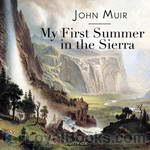 My First Summer in the Sierra
My First Summer in the Sierra
The journal of nature-lover John Muir who spent the summer of 1869 walking California’s Sierra Nevada range. From French Bar to Mono Lake and the Yosemite Valley, Muir was awestruck by everything he saw. The antics of the smallest “insect people” amazed him as much as stunted thousand-year old Juniper trees growing with inconceivable tenacity from tiny cracks in the stone. Muir spent the rest of his life working to preserve the high Sierra, believing that “the clearest way into the Universe is through a forest wilderness.” John Muir (1838-1914) was born in Dunbar, Scotland and grew up in Wisconsin, USA. This recording commemorates the 140th anniversary of that first summer. | |
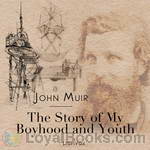 The Story of My Boyhood and Youth
The Story of My Boyhood and Youth
“The only fire for the whole house was the kitchen stove, with a fire box about eighteen inches long and eight inches wide and deep,- scant space for three or four small sticks, around which in hard zero weather all the family of ten shivered, and beneath which in the morning we found our socks and coarse, soggy boots frozen solid.” Thus, with perceptive eye for detail, the American naturalist, John Muir, describes life on a pioneer Wisconsin farm in the 1850’s. Muir was only eleven years old when his father uprooted the family from a relatively comfortable life in Dunbar, Scotland, to settle in the backwoods of North America... | |
 Travels in Alaska
Travels in Alaska
In 1879 John Muir went to Alaska for the first time. Its stupendous living glaciers aroused his unbounded interest, for they enabled him to verify his theories of glacial action. Again and again he returned to this continental laboratory of landscapes. The greatest of the tide-water glaciers appropriately commemorates his name. Upon this book of Alaska travels, all but finished before his unforeseen departure, John Muir expended the last months of his life. | |
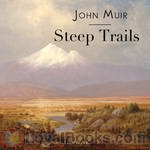 Steep Trails
Steep Trails
A collection of Muir's previously unpublished essays, released shortly after his death. "This volume will meet, in every way, the high expectations of Muir's readers. The recital of his experiences during a stormy night on the summit of Mount Shasta will take rank among the most thrilling of his records of adventure. His observations on the dead towns of Nevada, and on the Indians gathering their harvest of pine nuts, recall a phase of Western life that has left few traces in American literature... | |
By: John R. Jewitt (1783-1821) | |
|---|---|
 Captivity of Nearly Three Years Among the Savages of Nootka Sound
Captivity of Nearly Three Years Among the Savages of Nootka Sound
John Jewitt , a blacksmith by trade, spent the years 1803-1806 as a slave among the Nuu-chah-nulth people of Nootka Sound, off the Pacific Coast of Vancouver Island, Canada, after the trading vessel on which he served as armorer was attacked and its crew murdered by the native tribal chief Maquinna. Maquinna spared Jewitt's life on condition that the Jewitt would be his slave, would repair his muskets and make daggers, knives, and fishing gear for him. Jewitt's memoir is a considered a major source of information about the customs of the indigenous peoples of the Pacific Northwest. - Summary by Sue Anderson | |
By: John R. Lynch (1847-1939) | |
|---|---|
 The Facts of Reconstruction
The Facts of Reconstruction
After the American Civil War, John R. Lynch, who had been a slave in Mississippi, began his political career in 1869 by first becoming Justice of the Peace, and then Mississippi State Representative. He was only 26 when he was elected to the US Congress in 1873. There, he continued to be an activist, introducing many bills and arguing on their behalf. Perhaps his greatest effort was in the long debate supporting the Civil Rights Act of 1875 to ban discrimination in public accommodations.In 1884 Lynch was the first African American nominated after a moving speech by Theodore Roosevelt to the position of Temporary Chairman of the Republican National Convention in Chicago, Illinois... | |
By: John Relly Beard (1800-1876) | |
|---|---|
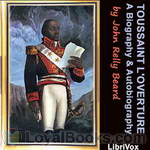 Toussaint L’Ouverture: A Biography and Autobiography
Toussaint L’Ouverture: A Biography and Autobiography
François-Dominique Toussaint L’Ouverture (1743-1803) rose to fame in 1791 during the Haitian struggle for independence. In this revolt, he led thousands of slaves on the island of Hispañola to fight against the colonial European powers of France, Spain and England. The former slaves ultimately established the independent state of Haiti and expelled the Europeans. L’Ouverture eventually became the governor and Commander-In-Chief of Haiti before recognizing and submitting to French rule in 1801... | |
By: John S. Mosby (1833-1916) | |
|---|---|
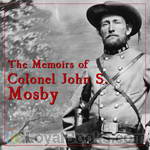 The Memoirs of Colonel John S. Mosby
The Memoirs of Colonel John S. Mosby
This is not a work of fiction! These are the actual memoirs of a legendary leader of partisans who bedeviled the Union army for years, almost within sight of the capitol. With only a few local men under command, John Singleton Mosby’s ability to strike fast and then melt away before an effective pursuit could be organized kept the Yankee forces awake and often snarled in knots. With daring feats like capturing a Yankee general out of his bed within his defended headquarters, Mosby made his name a synonym for guerrilla warfare... | |
By: John Stuart Mill (1806-1873) | |
|---|---|
 Autobiography of John Stuart Mill
Autobiography of John Stuart Mill
John Stuart Mill (20 May 1806 – 8 May 1873), British philosopher, political economist, civil servant and Member of Parliament, was an influential liberal thinker of the 19th century. He was an exponent of utilitarianism, an ethical theory developed by Jeremy Bentham, although his conception of it was very different from Bentham's. He was a forceful proponent in the fight for government intervention in social reform. | |